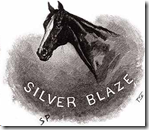Case Involved Renowned Interior Designer John Patton.
This next case involved John Patton, a renowned interior designer, who fell on bad times before he died: according to his housekeeper, he was drunk more than sober during the last sixth months of his life, howled like a dog, and fell down so as to injure himself. However, the 2/6 DCA in Butler v. LeBouef, Case No. B259534 (2d Dist., Div. 6 June 20, 2016) (published) was critical of a probate attorney who failed to rebut that he drafted a trust/living will which named himself as the principal beneficiary to a $5 million estate. In the end, a trial court found that attorney drafted/transcribed the will and trust such that it was presumed to be the product of undue influence and fraud given that attorney was the main beneficiary, invalidating the trust and removing attorney who also happened to be trustee. Attorney was ordered to turn over trust assets and pay $1,256,971 in attorney’s fees to Mr. Patton’s nieces under Probate Code section 21380(d), which provides that a beneficiary unsuccessful in rebutting the presumption of undue influence/fraud “shall all bear costs of the proceeding, including reasonable attorney fees.” In addition, the lower court denied trustee any trustee’s fees, attorney’s fees, or out-of-pocket expense reimbursement because it would be inequitable and reward attorney for his misconduct.
The 2/6 DCA affirmed, authored by Justice Yegan in a 3-0 decision.
Attorney failed to rebut the presumption of undue influence/fraud as the drafter of the will/trust naming himself as primary beneficiary. He could have rebutted in several ways: production of a certificate of independent review trumping the section 21380 presumption or presentation of evidence that he did not draft/transcribe the will and trust, but this rebuttal was either not presented or not credibly presented. “Drafters” are liable under section 21380(d), especially given a 2011 legislative enactment making this abundantly clear (changing a former provision not encompassing “drafters”).” The lower court did reduce requested fees by 20%, which showed the fee was hardly excessive in a case with five weeks of testimony.
Furthermore, the appellate court properly found attorney was not entitled to trustee fees, attorney’s fees, or out-of-pocket expenses based on the unclean hands rationale of the lower court.
FAVORITE QUOTE FROM CASE—“Like Sherlock Holmes’ ‘dog in the night’ that failed to bark (2 Doyle, Silver Blaze, The Annotated Sherlock Holmes (Baring-Gould, ed. 1967) pp. 277, 280), the absence of estate planning documents showed that something was amiss.”

